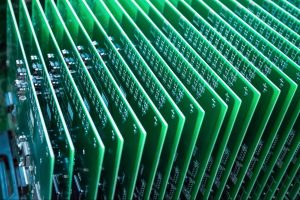Fast Turn PCB Prototypes Are Manufactured
PCB prototypes are a valuable tool in the design process. They enable engineers to detect potential defects and errors in the design before manufacturing. This saves time and money in production, preventing costly rework later on. This is especially important for complex printed circuit boards (PCBs) with high-end functionality. For instance, the ability to detect issues such as EMI can reduce product failures and improve overall quality.
Using rapid PCB prototyping, tech companies can get a feel for their products and make necessary adjustments to ensure that they are functional, reliable, and effective. They can also test different design variations and optimize the final design to meet their goals. The process is essential in accelerating the transition from prototype to mass production and reducing the project’s timeline to market.
Many PCB manufacturers promise fast turnaround times, but not all of them deliver on their promises. A few factors determine a manufacturer’s ability to deliver quick turn pcb prototypes, including the complexity of the board design, component availability, and manufacturing processes. When choosing a CM, look for a company that has a proven track record of meeting customer delivery expectations. They should offer flexible workflows, designer-centric file uploads, and streamlined ordering processes to minimize delays. They should also prioritize agility and have a team of technical experts to provide DFM support.

How Fast Turn PCB Prototypes Are Manufactured
The design-for-manufacture (DFM) process is one of the most crucial aspects of fast turn pcb prototype production. It is a way to ensure that the PCB is manufactured according to industry standards and has the right features for a successful product. DFM also helps to reduce rework and manufacturing costs by ensuring that the PCB is fit for production and minimizing waste.
It is important to choose a manufacturer that can handle multiple PCB manufacturing and assembly operations in-house. This will ensure that they can produce the prototypes and assemblies in a timely manner. It is also best to choose a local CM, as they will have a better understanding of the local markets and may be able to source components more quickly. Moreover, choosing a local CM will save on shipping costs and will also give you greater control over the quality of your boards.
In addition to handling multiple operations in-house, a good CM should be able to provide a complete range of services such as laser drilling/cutting, solder masks, and electrostatic discharge (ESD) testing. This will help to eliminate the need for rework and increase the quality of your finished products. They should also be able to handle a variety of surface finishes, including HASL, ENEPIG, and hard gold.
The speed and reliability of your pcb prototypes is essential to your success. A professional and experienced CM should be able to produce high-quality boards that will meet your requirements. They should be able to handle all stages of the manufacturing process, from the layout to the final assembly. They should also be able to produce the most advanced designs, such as multilayer and rigid-flex PCBs.